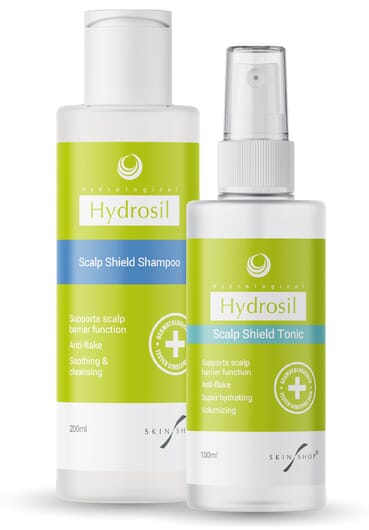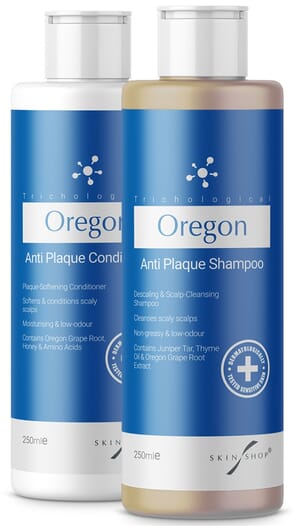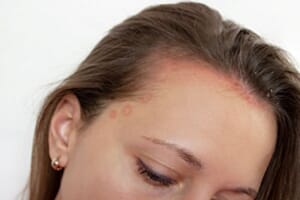During colder drier winter weather, do you find your scalp starts to get itchier with perhaps small dry fine white flakes forming? If you suffer from dandruff at other times of the year, this may not be the same thing as your normal dandruff, which is caused by fungal overgrowth on the scalp and produces larger greasier and greyer flakes.
Winter dandruff is usually something different, caused by scalp issues which trigger dry and irritated scalp as opposed to fungal growth and for which normal anti-dandruff shampoos don’t work, in fact they can even make it worse.
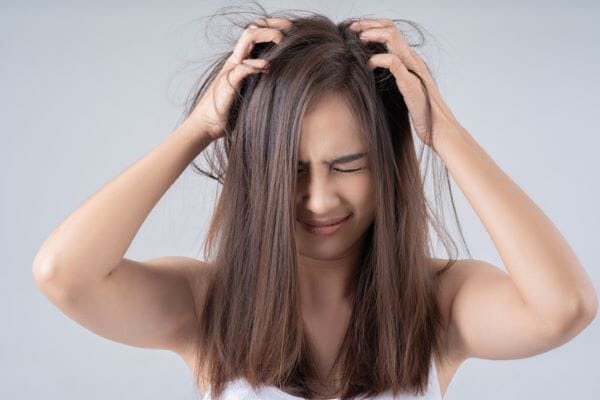
Winter dandruff can also affect people who never normally get dandruff as its not really ‘dandruff’ in the typical sense of word, its dry scalp, which can affect anyone under certain circumstances.
Treatments for dry scalp dandruff are very different from how to treat normal dandruff.
Dermatologist Dr Eva Melegh highlights the main causes for winter dandruff and what to do about them.
Dry Winter Air
The single most common cause of a dry scalp and itchy scalp is simply the environment.
In most northern climates, winter translates into cooler, drier air. During the summer, your skin has an easier time maintaining moisture because of all the extra humidity in the air.
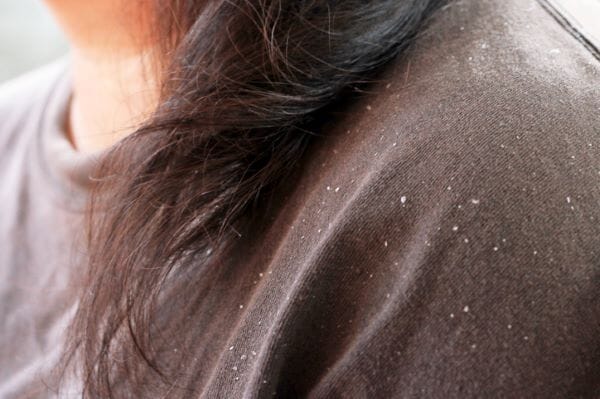
In winter, when the air is drier, your skin loses moisture to the air and must work much harder.
This is worsened by the system shock attached to colder air. Your skin’s job is to maintain homeostasis, and it’s harder for your skin to achieve that if it’s flipping back and forth between cold outdoor air and warm rooms.
Lack of vitamin D
Lack of vitamin D from little or no sun is a classic trigger for a flare of scalp psoriasis because UV rays help supress skin cell turnover that is the root cause of psoriatic plaques.
Scalp psoriasis is one of the most common places for psoriasis to appear first and is often mistaken for normal dandruff.
Psoriasis affects around 2% of the UK population. It is caused by an acceleration of skin cell production. Normally a skin cell matures in 21-28 days. Psoriatic cells, however, turn over in 2-3 days and in such profusion that the live cells reach the surface and accumulate with the dead cells still in visible plaques.

Coal tar shampoos are commonly prescribed for treating scalp psoriasis but are messy, smelly and not particularly effective.
Instead try Oregon Shampoo and Conditioner , two hair care products developed by a UK trichologist and trialled at Bath University for use on scalps prone to psoriasis that contain a plant-based ingredient from Oregon grape root that studies show help supress skin cell turnover. 95% of users on the trial found that Oregon hair care products improved itching and dryness and softened and reduced scalp plaques without irritation or dryness and with very low odour.
More frequent blow drying
We’re often told that stepping into wintety weather with wet hair is bad for us, which may be true when it comes to staying warm and preveting catching a winter chill.
Unfortunately, frequently blow-drying hair isn’t healthy for your scalp as the intense heat dries out the scalp, worsening the moisture loss you already experienced from having a hot shower.
Further still if you use a shampoo with de-greasing ingredients, your scalp will be even more dry and irritated.
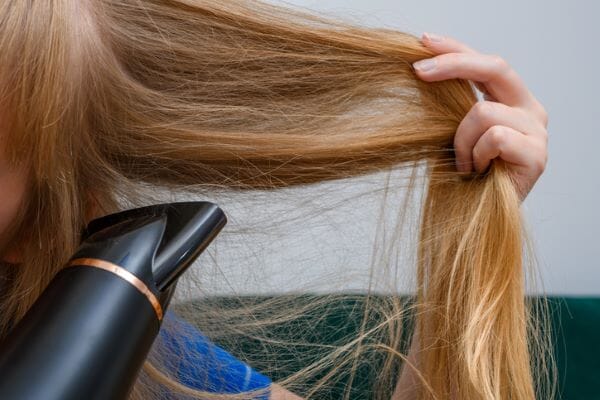
Its best to wash hair in the evening in winter to allow more time for the hair to dry naturally indoors.
Switch to a shampoo that doesn’t contain harsh de-greasing agents, and which also contains ingredients to replenish and repair scalp barrier function to reduce irritation and dryness.
Try Hydrosil Scalp Shield Shampoo and Scalp Shield Tonic (which is a light non-greasy leave-in formula). Both contain a plant-derived ‘steroid’ to reduce itching, plant-based prebiotics to repair skin barrier function and are chemical-free and perfume-free.
Winter Hats
Unfortunately, our efforts to protect our head and face from the weather also wreak havoc on our scalp.
When you cover up in the winter with a winter hat, you keep your head warm, but you also create a warm, sweaty environment for bacteria to flourish. So, we can ed up with bacterial overgrowth on the scalp combined with dryness, which creates intense itching and dry fine flaking.

Better options are earmuffs or a thermal headband, designed to keep the ears warm but leave the top of the head open and aired.
Hot Showers and Dry Indoor Heating
Everyone likes to take a hot shower on a cold morning, or a hot bath to warm your bones after a long day out in the cold. Unfortunately, for your scalp the benefits are not so great.

Hot water can dry out and irritate your skin. It strips your skin of oils that were already scarce due to cold air, and it prevents your skin from locking in moisture. Once you step out of the shower, the effect gets worse thanks to a dry, warm environment cultivated by central heating, resulting in a dry, itchy scalp.
Showering in more tepid temperature water can help ease the problem along with turning the heating down overnight.




